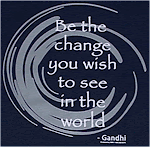| From: |
Glen was preaching on his TV show last night that we need to tear down the wall of separation of church and state.
Help me jesus!!!
Fundalmentalist Christian radio talk show hosts have been saying that Thanksgiving was originally, declared by George Washington as a religious holiday and a day of prayer.
But..... according to anthropologist,
"Thanksgiving Day was first officially proclaimed by the Governor of the
Massachusetts Bay Colony in 1637 to commemorate the massacre of 700 men, women and children who were celebrating their annual green corn
dance-Thanksgiving Day to them-in their own house," Newell said.
"Gathered in this place of meeting they were attacked by mercenaries and
Dutch and English. The Indians were ordered from the building and as they
came forth they were shot down. The rest were burned alive in the
building," he said.
Newell based his research on studies of Holland Documents and the 13
volume Colonial Documentary History, both thick sets of letters and
reports from colonial officials to their superiors and the king in
England, and the private papers of Sir William Johnson, British Indian
agent for the New York colony for 30 years in the mid-1600s.
Newell said the next 100 Thanksgivings commemorated the killing of the
Indians at what is now Groton, Ct.,rather than a celebration with them.
(Source: Community Endeavor News, November, 1995, as reprinted in
Healing Global Wounds, Fall, 1996
-----
In 1585, before there was any permanent English settlement in Virginia, Richard Grenville landed there with seven ships. The Indians he met were hospitable, but when one of them stole a small silver cup, Grenville sacked and burned the whole Indian village.
The Jamestown colony was established in Virginia in 1607, inside the territory of an Indian confederacy, led by the chief, Powhatan. Powhatan watched the English settle on his people's land, but did not attack. And the English began starving. Some of them ran away and joined the Indians, where they would at least be fed. Indeed, throughout colonial times tens of thousands of indentured servants, prisoners and slaves -- from Wales and Scotland as well as from Africa -- ran away to live in Indian communities, intermarry, and raise their children there.
In the summer of 1610 the governor of Jamestown colony asked Powhatan to return the runaways, who were living fully among the Indians. Powhatan left the choice to those who ran away, and none wanted to go back. The governor of Jamestown then sent soldiers to take revenge. They descended on an Indian community, killed 15 or 16 Indians, burned the houses, cut down the corn growing around the village, took the female leader of the tribe and her children into boats, then ended up throwing the children overboard and shooting out their brains in the water. The female leader was later taken off the boat and stabbed to death.
By 1621, the atrocities committed by the English had grown, and word spread throughout the Indian villages. The Indians fought back, and killed 347 colonists. From then on it was total war. Not able to enslave the Indians the English aristocracy decided to exterminate them.
And then the Pilgrims arrived.
When the Pilgrims came to New England they too were coming not to vacant land but to territory inhabited by tribes of Indians. The story goes that the Pilgrims, who were Christians of the Puritan sect, were fleeing religious persecution in Europe. They had fled England and went to Holland, and from there sailed aboard the Mayflower, where they landed at Plymouth Rock in what is now Massachusetts.
Religious persecution or not, they immediately turned to their religion to rationalize their persecution of others. They appealed to the Bible, Psalms 2:8: "Ask of me, and I shall give thee, the heathen for thine inheritance, and the uttermost parts of the earth for thy possession." To justify their use of force to take the land, they cited Romans 13:2: "Whosoever therefore resisteth the power, resisteth the ordinance of God: and they that resist shall receive to themselves damnation."
The pastor of the Pilgrim colony, John Robinson, advised his parishioners: "And surely there is in all children a stubbornness, and stoutness of mind arising from natural pride, which must, in the first place, be broken and beaten down; that so the foundation of their education being laid in humility and tractableness, other virtues may, in their time, be built thereon."
http://www.rense.
Is the Thanksgiving holiday at the heart of U.S. myth-building?
One vehicle for taming history is various patriotic holidays, with Thanksgiving at the heart of U.S. myth-building.
Everyone understands we (Americans) are an inherently benevolent one, but all our history contradicts that claim. The history of the US must be twisted and tortured to serve the purposes of the powerful.
The first president, George Washington, in 1783 said he preferred buying Indians' land rather than driving them off it because that was like driving "wild beasts" from the forest. He compared Indians to wolves, "both being beasts of prey, tho' they differ in shape."
Thomas Jefferson -- president No. 3 and author of the Declaration of Independence, which refers to Indians as the "merciless Indian Savages" -- was known to romanticize Indians and their culture, but that didn't stop him in 1807 from writing to his secretary of war that in a coming conflict with certain tribes, "[W]e shall destroy all of them."
Theodore Roosevelt (president No. 26) defended the expansion of whites across the continent as an inevitable process "due solely to the power of the mighty civilized races which have not lost the fighting instinct, and which by their expansion are gradually bringing peace into the red wastes where the barbarian peoples of the world hold sway."
Roosevelt also once said, "I don't go so far as to think that the only good Indians are dead Indians, but I believe nine out of 10 are, and I shouldn't like to inquire too closely into the case of the 10th."
U.S. elites have a clear stake in the contemporary propaganda value of that history.
http://www.alternet
NOTICE: Material posted to this mailing list is distributed without profit to those who have expressed a prior interest in receiving the included information for research and/or educational purposes. We believe this constitutes a 'fair use' of any copyrighted material as provided for in Title 17 U.S.C. Section 107 of the US Copyright Law. http://www.law.





























